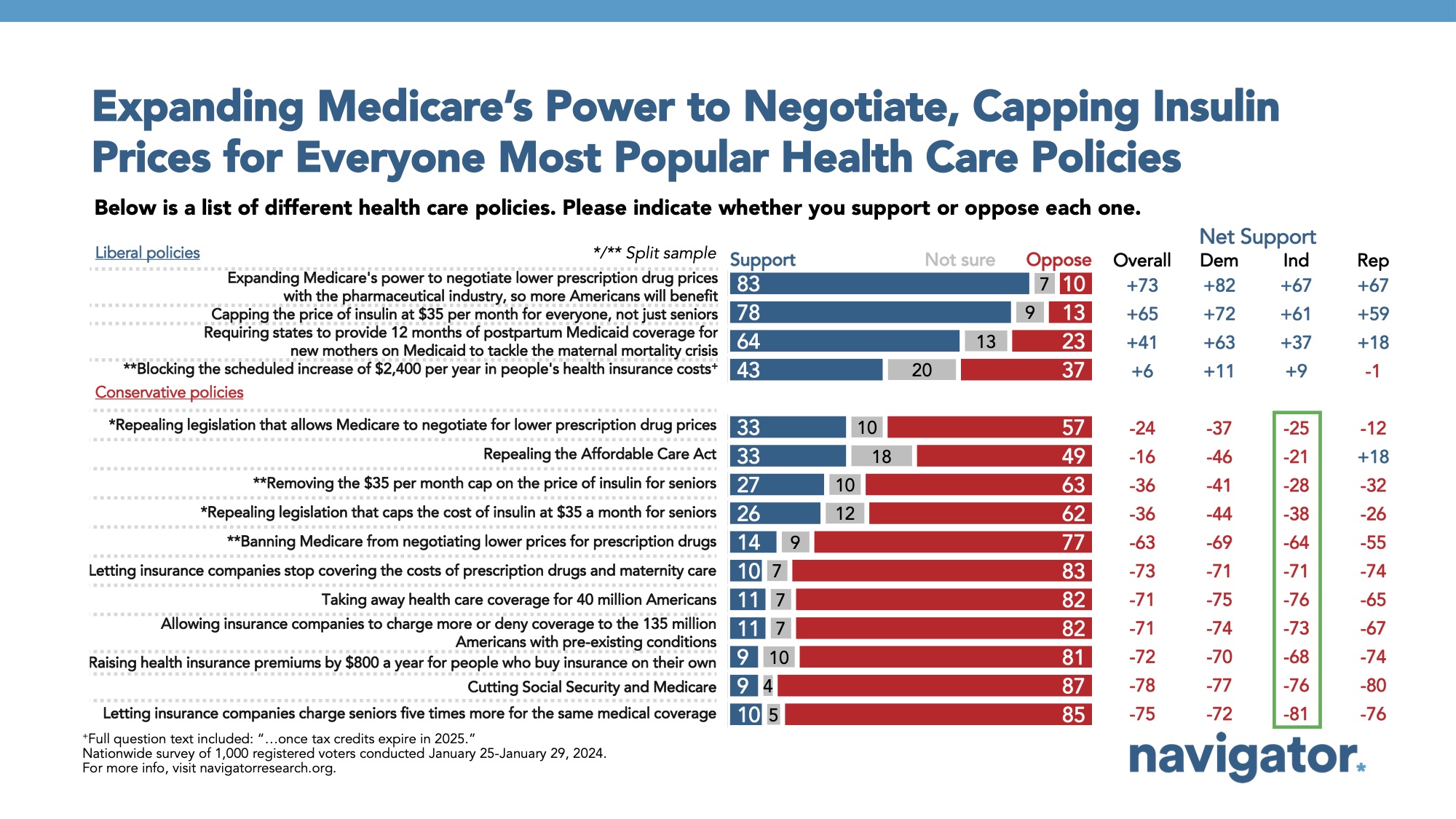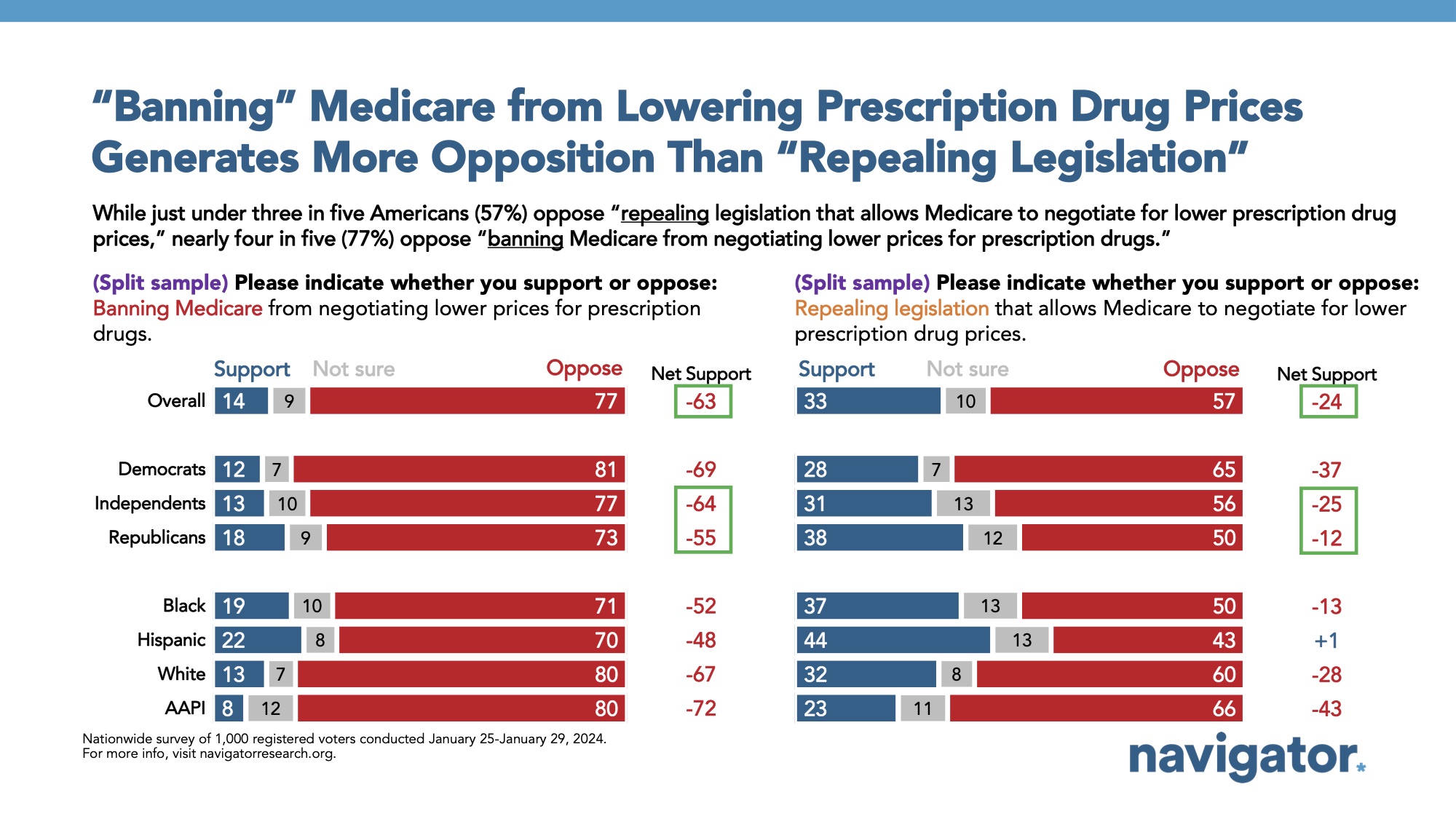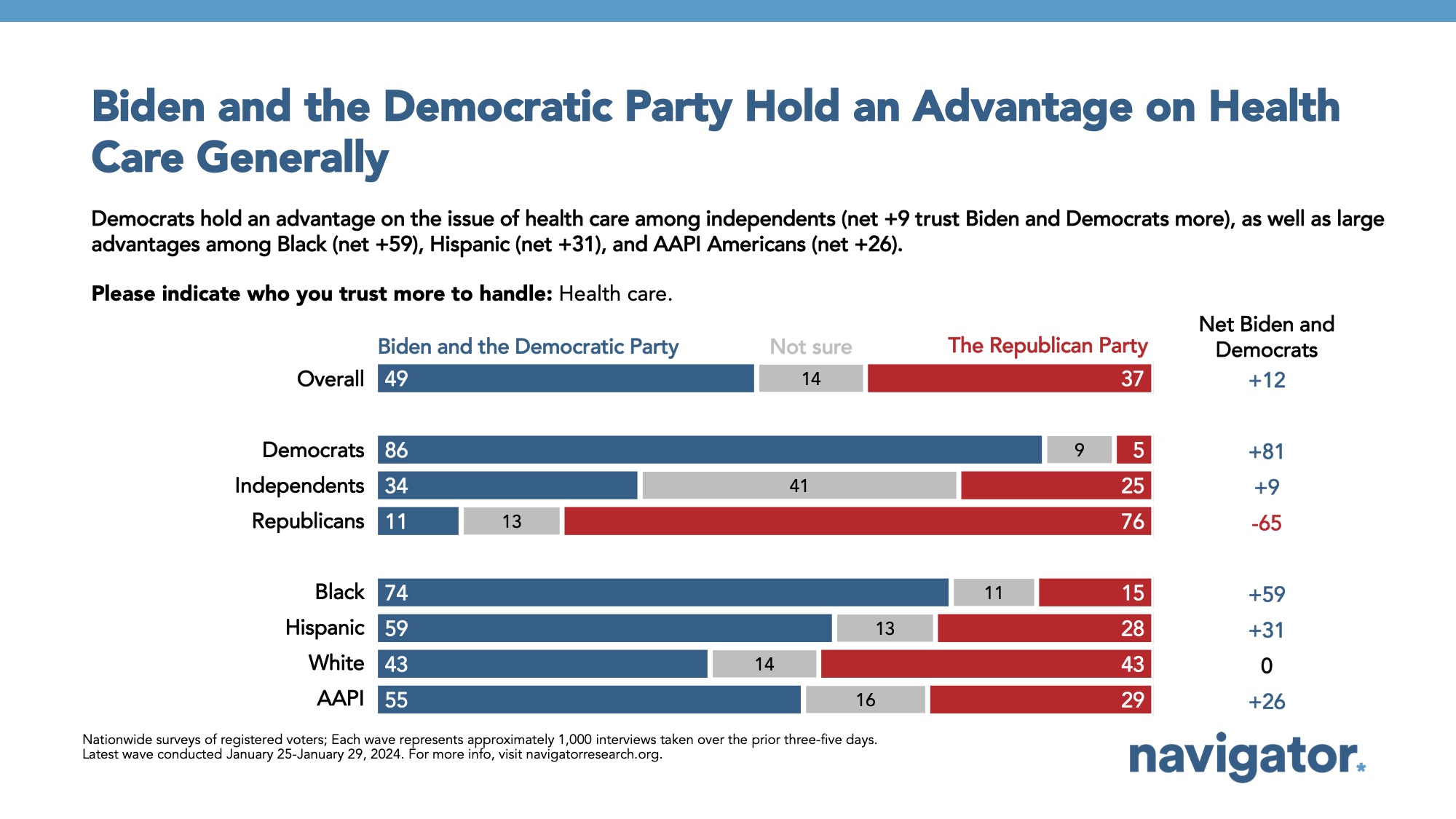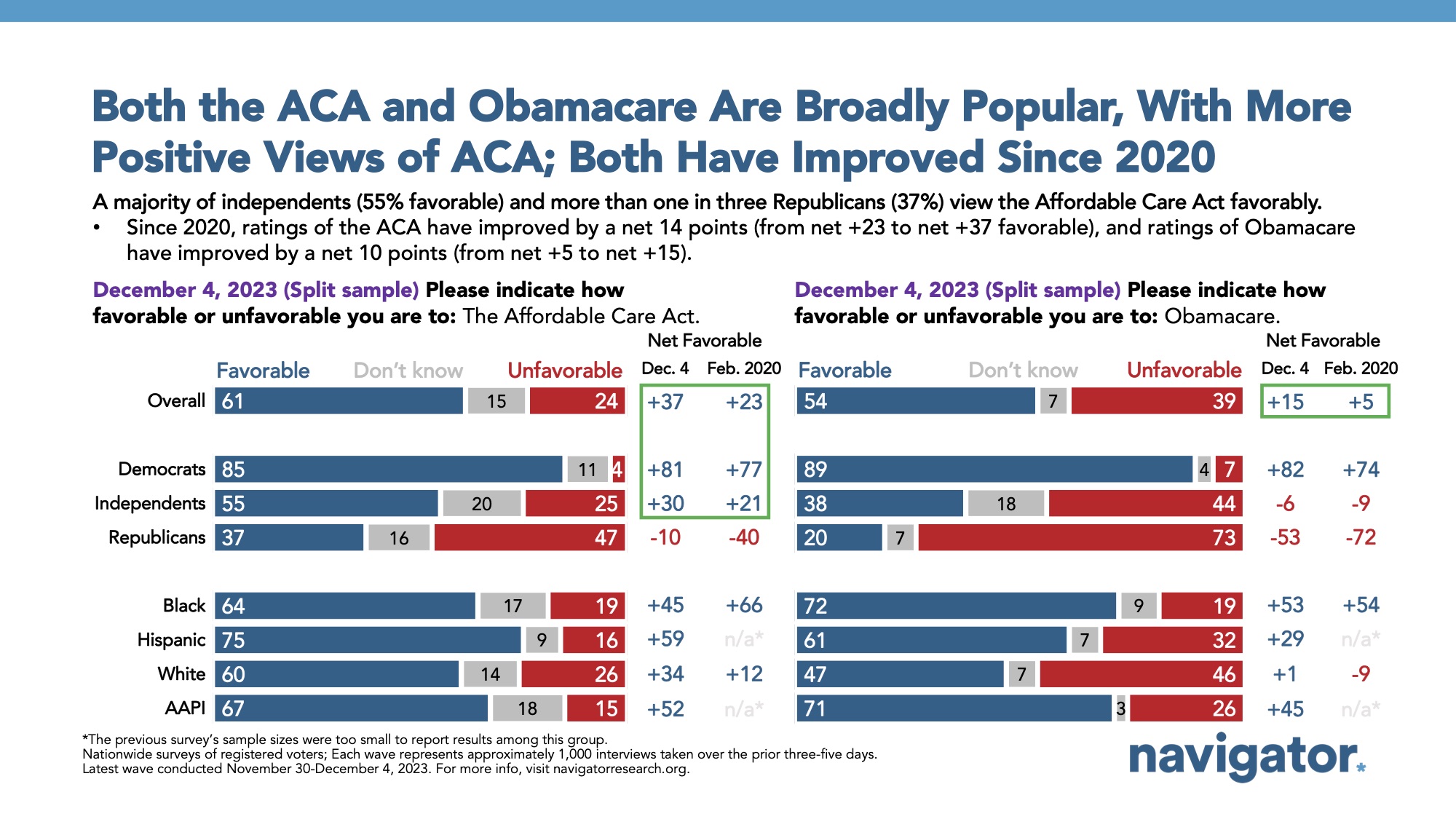Poll: Health Care in the U.S.
This Navigator Research report contains polling data on how Americans evaluate a variety of proposed progressive and conservative health care policies in the country, how Americans view the Affordable Care Act, and which party Americans trust most to handle the issue of health care.
Vast majorities are opposed to conservative proposals that would cut Social Security and Medicare.
Conservative health care proposals, especially those that take away coverage, discriminate because of age or illness, or raise costs for insurance premiums or prescription drugs, are deeply unpopular. The most opposed conservative health care policies include “cutting Social Security and Medicare” (net -78; 9 percent support – 87 percent oppose), “letting insurance companies charge seniors five times more for the same medical coverage” (net -75; 10 percent support – 85 percent oppose), “letting insurance companies stop covering the costs of prescription drugs and maternity care” (net -73; 10 percent support – 83 percent oppose), “taking away health care coverage for 40 million Americans” (net -71; 11 percent support – 82 percent oppose), and “allowing insurance companies to charge more or deny coverage to the 135 million Americans with pre-existing conditions” (net -71; 11 percent support – 82 percent oppose).
- By contrast, progressive proposals earn strong support from Americans, including “expand[ing] Medicare’s power to negotiate lower prescription drug prices with the pharmaceutical industry, so more Americans will benefit” (net +73; 83 percent support – 10 percent oppose), “cap[ping] the price of insulin at $35 per month for everyone, not just seniors” (net +65; 78 percent support – 13 percent oppose), and “requir[ing] states to provide 12 months of postpartum Medicaid coverage for new mothers on Medicaid to tackle the maternal mortality crisis” (net +41; 64 percent support – 23 percent oppose).
- While majorities oppose both, framing the conservative proposal of “banning Medicare from negotiating lower prices for prescription drugs” generates more opposition (77 percent) than framing it as “repealing legislation that allows Medicare to negotiate lower prescription drug prices” (57 percent). Opposition to “banning” over “repealing legislation” grows substantially across partisanship, including among Democrats (from net -37 to net -69), independents (from net -25 to net -64), and Republicans (from net -12 to net -55).
President Biden and Democrats have a double-digit trust advantage over Republicans on handling health care.
By a 12-point margin, Americans trust Biden and the Democratic Party to handle health care (49 percent Biden/Democrats – 37 percent Republicans), including Black Americans by 59 points, Hispanic Americans by 31 points, and Asian American and Pacific Islanders by 26 points. However, while Biden and Democrats maintain a trust advantage, it is generally smaller than the level of support for progressive-oriented policies: While progressive health care policies garner support across partisanship by double-digit margins, a plurality of Americans say they are unsure who they trust more on the issue of health care (34 percent Biden/Democrats – 25 percent Republicans – 41 percent not sure).
- Reminder: In a December survey, three in five Americans were favorable toward the Affordable Care Act (net +37; 61 percent favorable – 24 percent unfavorable) and a majority were favorable toward Obamacare (net +15; 54 percent favorable – 39 percent unfavorable). Both have gained favorability among Americans since 2020 by at least 10 points (from net +23 in February 2020 to net +37 now for the Affordable Care Act; from net +5 in February 2020 to net +15 now).
About The Study
Global Strategy Group conducted public opinion surveys among a sample of 1,000 registered voters from January 25-January 29, 2024. 100 additional interviews were conducted among Hispanic voters. 75 additional interviews were conducted among Asian American and Pacific Islander voters. 100 additional interviews were conducted among African American voters. 100 additional interviews were conducted among independent voters. The survey was conducted online, recruiting respondents from an opt-in online panel vendor. Respondents were verified against a voter file and special care was taken to ensure the demographic composition of our sample matched that of the national registered voter population across a variety of demographic variables.







